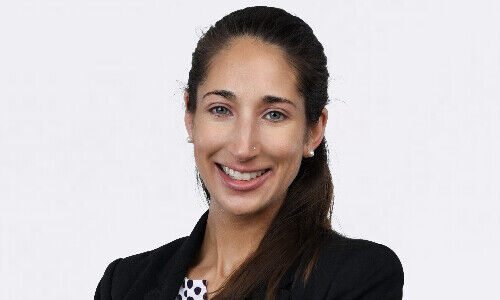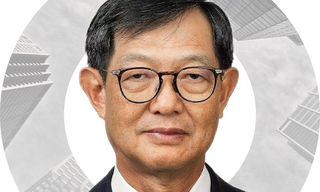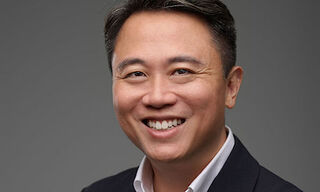Digital transformation in wealth management isn't merely about technology – it's about being fit for the future. According to Vivien Jain in her article for finews.first, the challenge lies in bridging the gap between tradition and modernity.
finews.first is a forum for authors to comment on economic and financial topics.
Wealth management is currently experiencing one of the most significant upheavals in its history. Not long ago, personal relationships, handwritten notes, and confidential conversations were the cornerstones of the business.
Today, the industry faces the challenge of navigating between tradition and the future, especially as technological advancement accelerates rapidly.
«This is why choosing the right digital partner is critical»
Digital transformation is no longer optional; it has become mandatory. Moving highly sensitive data – historically guarded with the utmost discretion – into digital systems requires trust and caution, particularly given the rising cyber risks. This is why choosing the right digital partner is critical. The goal is to meet the expectations of the next generation and comply with increasingly stringent regulations.
A key driver of this shift is the upcoming generation of heirs, who are set to inherit substantial wealth from their parents and grandparents. This generation has grown up in a digital world, where using technology intuitively is second nature.
«It’s not just clients pushing for change»
Wealth managers unable to engage with these tech-savvy clients on their terms will struggle to build trust. Not only are client relationships changing, but the way information is presented is evolving rapidly. Paper-based investment proposals and reports, mailed to clients, now seem antiquated compared to digital, interactive dashboards.
However, it's not just clients driving this shift – regulatory frameworks are tightening as well. New laws and regulations require wealth managers to document their decisions and activities comprehensively. Every advisory step and investment must now be traceable and verifiable – a task nearly impossible without digital tools.
Utilizing these tools is not just a matter of efficiency; it's also essential for staying competitive as an employer or attractive to potential successors in smaller firms. Bureaucratic processes consume valuable resources that could be better used for client service.
«Digitalization doesn’t stop at administrative software»
The adoption of digital systems is therefore not just about modernization, but also about efficiency. Automated processes and intelligent software solutions can significantly reduce administrative workloads. Routine tasks such as data entry, reporting, or portfolio analysis can be completed faster and more accurately with digital tools. This saves time and minimizes errors, freeing up time for personalized client advisory—an area that will always remain crucial despite digital advancements.
One thing is clear: the personal element will always be an indispensable part of wealth management. Wealth managers must continue to earn and maintain their clients' trust. But because personal interaction remains so critical, it’s all the more important that digital tools streamline everyday tasks, allowing more focus on clients instead of bureaucratic duties.
Digitalization, however, doesn't end with management software or dashboards. The next big step is the integration of artificial intelligence (AI). Wealth managers don’t need to be early adopters, but they should start experimenting and evaluating use cases, as AI holds immense potential.
«The challenge is to filter out accurate information»
AI can help filter the overwhelming flow of information that wealth managers face today – news, market analyses, political developments, and more. The sheer volume of data bombarding financial professionals is staggering. The challenge is to extract relevant and accurate information in real time.
AI systems trained to handle such tasks can provide valuable support. They identify trends, propose investment opportunities based on algorithms, and flag risks. Human advisors still play a critical role, questioning these AI-driven suggestions and translating them into meaningful strategies for clients.
Despite all these technological tools, the human element in wealth management will never be entirely replaced by machines. In the sensitive realm of financial management, trust, intuition, and experience are crucial – qualities no algorithm can fully replicate. But this is where the opportunity lies: if routine tasks and administrative duties are handled by AI and digital systems, wealth managers will have more time to focus on their core competencies – individual client advice and service.
«Those who embrace this path will be prepared for future challenges ahead»
Thus, digital transformation in wealth management is not just about technology – it’s about being ready for the future and for the next generation of clients. It’s about successfully balancing tradition and innovation.
By effectively leveraging new technologies, wealth managers can meet rising expectations, boost efficiency, and refocus on what wealth management truly revolves around earning and maintaining clients' trust. Digitalization and the use of AI offer tremendous opportunities but must be implemented thoughtfully. It’s not about being a frontrunner in adopting the latest technology, but about integrating digital solutions in a meaningful, long-term way.
Those who embrace this path will be prepared for the challenges ahead—and will continue to earn their clients' trust in an increasingly digital world. After all, it’s not just about what technology you use, but how you use it to strengthen the human side of the business.
Vivien Jain is the CEO of Swiss wealth management group Aquila. A Canadian-Swiss dual citizen with Indian roots, she has been with the company since 2014, gradually taking on more responsibilities in Legal, Compliance, and Risk, before joining the executive board in 2016. Previously, she worked for PwC. Aquila manages over 22 billion francs in client assets through its approximately 90 partner firms.
Previous contributions: Rudi Bogni, Peter Kurer, Rolf Banz, Dieter Ruloff, Werner Vogt, Walter Wittmann, Alfred Mettler, Robert Holzach, Craig Murray, David Zollinger, Arthur Bolliger, Beat Kappeler, Chris Rowe, Stefan Gerlach, Nuno Fernandes, Richard Egger, Maurice Pedergnana, Marco Bargel, Steve Hanke, Urs Schoettli, Ursula Finsterwald, Stefan Kreuzkamp, Oliver Bussmann, Michael Benz, Albert Steck, Martin Dahinden, Thomas Fedier, Alfred Mettler, Brigitte Strebel, Mirjam Staub-Bisang, Nicolas Roth, Thorsten Polleit, Kim Iskyan, Stephen Dover, Denise Kenyon-Rouvinez, Christian Dreyer, Kinan Khadam-Al-Jame, Robert Hemmi, Anton Affentranger, Yves Mirabaud, Katharina Bart, Frédéric Papp, Hans-Martin Kraus, Gerard Guerdat, Mario Bassi, Stephen Thariyan, Dan Steinbock, Rino Borini, Bert Flossbach, Michael Hasenstab, Guido Schilling, Werner E. Rutsch, Dorte Bech Vizard, Katharina Bart, Maya Bhandari, Jean Tirole, Hans Jakob Roth, Marco Martinelli, Thomas Sutter, Tom King, Werner Peyer, Thomas Kupfer, Peter Kurer, Arturo Bris, Frederic Papp, James Syme, Dennis Larsen, Bernd Kramer, Armin Jans, Nicolas Roth, Hans Ulrich Jost, Patrick Hunger, Fabrizio Quirighetti, Claire Shaw, Peter Fanconi, Alex Wolf, Dan Steinbock, Patrick Scheurle, Sandro Occhilupo, Will Ballard, Nicholas Yeo, Claude-Alain Margelisch, Jean-François Hirschel, Jens Pongratz, Samuel Gerber, Philipp Weckherlin, Anne Richards, Antoni Trenchev, Benoit Barbereau, Pascal R. Bersier, Shaul Lifshitz, Klaus Breiner, Ana Botín, Martin Gilbert, Jesper Koll, Ingo Rauser, Carlo Capaul, Markus Winkler, Thomas Steinemann, Christina Boeck, Guillaume Compeyron, Miro Zivkovic, Alexander F. Wagner, Eric Heymann, Christoph Sax, Felix Brem, Jochen Moebert, Jacques-Aurélien Marcireau, Ursula Finsterwald, Michel Longhini, Stefan Blum, Zsolt Kohalmi, Nicolas Ramelet, Søren Bjønness, Gilles Prince, Salman Ahmed, Peter van der Welle, Ken Orchard, Christian Gast, Jeffrey Bohn, Juergen Braunstein, Jeff Voegeli, Fiona Frick, Stefan Schneider, Matthias Hunn, Andreas Vetsch, Fabiana Fedeli, Kim Fournais, Carole Millet, Swetha Ramachandran, Thomas Stucki, Neil Shearing, Tom Naratil, Oliver Berger, Robert Sharps, Tobias Mueller, Florian Wicki, Jean Keller, Niels Lan Doky, Johnny El Hachem, Judith Basad, Katharina Bart, Thorsten Polleit, Peter Schmid, Karam Hinduja, Zsolt Kohalmi, Raphaël Surber, Santosh Brivio, Mark Urquhart, Olivier Kessler, Bruno Capone, Peter Hody, Michael Bornhaeusser, Agnieszka Walorska, Thomas Mueller, Ebrahim Attarzadeh, Marcel Hostettler, Hui Zhang, Michael Bornhaeusser, Reto Jauch, Angela Agostini, Guy de Blonay, Tatjana Greil Castro, Jean-Baptiste Berthon, Marc Saint John Webb, Dietrich Goenemeyer, Mobeen Tahir, Didier Saint-Georges, Serge Tabachnik, Vega Ibanez, David Folkerts-Landau, Andreas Ita, Michael Welti, Fabrizio Pagani, Roman Balzan, Todd Saligman, Stuart Dunbar, Carina Schaurte, Birte Orth-Freese, Gun Woo, Lamara von Albertini, Ramon Vogt, Andrea Hoffmann, Niccolò Garzelli, Darren Williams, Benjamin Böhner, Mike Judith, Jared Cook, Henk Grootveld, Roman Gaus, Nicolas Faller, Anna Stünzi, Thomas Höhne-Sparborth, Fabrizio Pagani, Guy de Blonay, Jan Boudewijns, Sean Hagerty, Alina Donets, Sébastien Galy, Roman von Ah, Fernando Fernández, Georg von Wyss, Stefan Bannwart, Andreas Britt, Frédéric Leroux, Nick Platjouw, Rolando Grandi, Philipp Kaupke, Gérard Piasko, Brad Slingerlend, Dieter Wermuth, Grégoire Bordier, Thomas Signer, Gianluca Gerosa, Christine Houston, Manuel Romera Robles, Fabian Käslin, Claudia Kraaz, Marco Huwiler, Lukas Zihlmann, Sherif Mamdouh, Harald Preissler, Taimur Hyat, Philipp Cottier, Andreas Herrmann, Camille Vial, Marcus Hüttinger, Serge Beck, Alannah Beer, Stéphane Monier, Ashley Simmons, Lars Jaeger, Shanna Strauss-Frank, Bertrand Binggeli, Marionna Wegenstein, George Muzinich, Jian Shi Cortesi, Razan Nasser, Nicolas Forest, Joerg Ruetschi, Reto Jauch, Bernardo Brunschwiler, Charles-Henry Monchau, Ha Duong, Teodoro Cocca, Jan Brzezek, Nicolas Mousset, Beat Weiss, Pascal Mischler, Andrew Isbester, Konrad Hummler, Jan Beckers, Martin Velten, Katharine Neiss, Claude Baumann, Daniel Roarty, Kubilay Yalcin, Robert Almeida, Karin M. Klossek, Marc Taverner, Charlie T. Munger, Daniel Kobler, Patrick Stauber, Anna Rosenber, Judith Wallenstein, Adriano Lucatelli, Daniel Goleman, Val Olson, Brice Prunas, Francesco Magistra, Frances Weir, Luis Maldonado, Francesco Magistra, Nadège Lesueur-Pène, Massimo Pedrazzini, Eric Sarasin, David Ellis, Dina Ting, Christopher Gannatti, Shaniel Ramjee, Mihkel Vitsur, Nannette Hechler-Fayd’herbe, Ralph Ebert, Chris Cottorone, Francesco Mandalà, Mariolina Esposito, Maryann Umoren Selfe, Dominique Gerster, Marc Arand, Christian Kälin, Nadège Dufossé, Benjamin Melman, Brigitte Kaps, Florin Baeriswyl, Marc Reinhardt, Thomas Holderegger, Beat Wittmann, Bruno Cavalier, Gary Burnison, Louise Curran, Adrian Cox, Philip Adler, Serge Fehr, Marc Lussy, Axel Brosey, and Colin Vidal.
























